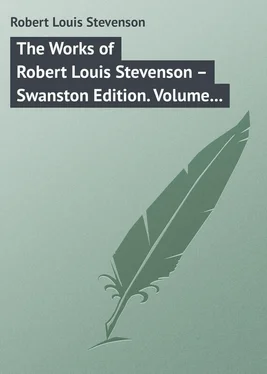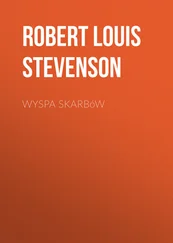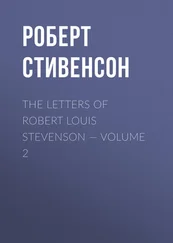Robert Stevenson - The Works of Robert Louis Stevenson – Swanston Edition. Volume 14
Здесь есть возможность читать онлайн «Robert Stevenson - The Works of Robert Louis Stevenson – Swanston Edition. Volume 14» — ознакомительный отрывок электронной книги совершенно бесплатно, а после прочтения отрывка купить полную версию. В некоторых случаях можно слушать аудио, скачать через торрент в формате fb2 и присутствует краткое содержание. ISBN: , Жанр: Поэзия, foreign_prose, foreign_poetry, на английском языке. Описание произведения, (предисловие) а так же отзывы посетителей доступны на портале библиотеки ЛибКат.
- Название:The Works of Robert Louis Stevenson – Swanston Edition. Volume 14
- Автор:
- Жанр:
- Год:неизвестен
- ISBN:http://www.gutenberg.org/ebooks/30659
- Рейтинг книги:3 / 5. Голосов: 1
-
Избранное:Добавить в избранное
- Отзывы:
-
Ваша оценка:
- 60
- 1
- 2
- 3
- 4
- 5
The Works of Robert Louis Stevenson – Swanston Edition. Volume 14: краткое содержание, описание и аннотация
Предлагаем к чтению аннотацию, описание, краткое содержание или предисловие (зависит от того, что написал сам автор книги «The Works of Robert Louis Stevenson – Swanston Edition. Volume 14»). Если вы не нашли необходимую информацию о книге — напишите в комментариях, мы постараемся отыскать её.
The Works of Robert Louis Stevenson – Swanston Edition. Volume 14 — читать онлайн ознакомительный отрывок
Ниже представлен текст книги, разбитый по страницам. Система сохранения места последней прочитанной страницы, позволяет с удобством читать онлайн бесплатно книгу «The Works of Robert Louis Stevenson – Swanston Edition. Volume 14», без необходимости каждый раз заново искать на чём Вы остановились. Поставьте закладку, и сможете в любой момент перейти на страницу, на которой закончили чтение.
Интервал:
Закладка:
TO ANDREW LANG
Dear Andrew, with the brindled hair,
Who glory to have thrown in air,
High over arm, the trembling reed,
By Ale and Kail, by Till and Tweed:
An equal craft of hand you show
The pen to guide, the fly to throw:
I count you happy-starred; for God,
When He with inkpot and with rod
Endowed you, bade your fortune lead
For ever by the crooks of Tweed,
For ever by the woods of song
And lands that to the Muse belong;
Or if in peopled streets, or in
The abhorred pedantic sanhedrin,
It should be yours to wander, still
Airs of the morn, airs of the hill,
The plovery Forest and the seas
That break about the Hebrides,
Should follow over field and plain
And find you at the window-pane;
And you again see hill and peel,
And the bright springs gush at your heel.
So went the fiat forth, and so
Garrulous like a brook you go,
With sound of happy mirth and sheen
Of daylight – whether by the green
You fare that moment, or the grey;
Whether you dwell in March or May;
Or whether treat of reels and rods
Or of the old unhappy gods:
Still like a brook your page has shone,
And your ink sings of Helicon.
XV
ET TU IN ARCADIA VIXISTI
(TO R. A. M. S.)
In ancient tales, O friend, thy spirit dwelt;
There, from of old, thy childhood passed; and there
High expectation, high delights and deeds,
Thy fluttering heart with hope and terror moved.
And thou hast heard of yore the Blatant Beast,
And Roland’s horn, and that war-scattering shout
Of all-unarmed Achilles, ægis-crowned.
And perilous lands thou sawest, sounding shores
And seas and forests drear, island and dale
And mountain dark. For thou with Tristram rod’st
Or Bedevere, in farthest Lyonesse.
Thou hadst a booth in Samarcand, whereat
Side-looking Magians trafficked; thence, by night,
An Afreet snatched thee, and with wings upbore
Beyond the Aral Mount; or, hoping gain,
Thou, with a jar of money, didst embark
For Balsorah by sea. But chiefly thou
In that clear air took’st life; in Arcady
The haunted, land of song; and by the wells
Where most the gods frequent. There Chiron old,
In the Pelethronian antre, taught thee lore;
The plants he taught, and by the shining stars
In forests dim to steer. There hast thou seen
Immortal Pan dance secret in a glade,
And, dancing, roll his eyes; these, where they fell,
Shed glee, and through the congregated oaks
A flying horror winged; while all the earth
To the god’s pregnant footing thrilled within.
Or whiles, beside the sobbing stream, he breathed,
In his clutched pipe unformed and wizard strains
Divine yet brutal; which the forest heard,
And thou, with awe; and far upon the plain
The unthinking ploughman started and gave ear.
Now things there are that, upon him who sees,
A strong vocation lay; and strains there are
That whoso hears shall hear for evermore.
For evermore thou hear’st immortal Pan
And those melodious godheads, ever young
And ever quiring, on the mountains old.
What was this earth, child of the gods, to thee?
Forth from thy dreamland thou, a dreamer, cam’st
And in thine ears the olden music rang,
And in thy mind the doings of the dead,
And those heroic ages long forgot.
To a so fallen earth, alas! too late,
Alas! in evil days, thy steps return,
To list at noon for nightingales, to grow
A dweller on the beach till Argo come
That came long since, a lingerer by the pool
Where that desirèd angel bathes no more.
As when the Indian to Dakota comes,
Or farthest Idaho, and where he dwelt,
He with his clan, a humming city finds;
Thereon a while, amazed, he stares, and then
To right and leftward, like a questing dog,
Seeks first the ancestral altars, then the hearth
Long cold with rains, and where old terror lodged,
And where the dead: so thee undying Hope,
With all her pack, hunts screaming through the years:
Here, there, thou fleeëst; but nor here nor there
The pleasant gods abide, the glory dwells.
That, that was not Apollo, not the god.
This was not Venus, though she Venus seemed
A moment. And though fair yon river move,
She, all the way, from disenchanted fount
To seas unhallowed runs; the gods forsook
Long since her trembling rushes; from her plains
Disconsolate, long since adventure fled;
And now although the inviting river flows,
And every poplared cape, and every bend
Or willowy islet, win upon thy soul
And to thy hopeful shallop whisper speed;
Yet hope not thou at all; hope is no more;
And O, long since the golden groves are dead
The faëry cities vanished from the land!
XVI
TO W.E. HENLEY
The year runs through her phases; rain and sun,
Spring-time and summer pass; winter succeeds;
But one pale season rules the house of death.
Cold falls the imprisoned daylight; fell disease
By each lean pallet squats, and pain and sleep
Toss gaping on the pillows.
But O thou!
Uprise and take thy pipe. Bid music flow,
Strains by good thoughts attended, like the spring
The swallows follow over land and sea.
Pain sleeps at once; at once, with open eyes,
Dozing despair awakes. The shepherd sees
His flock come bleating home; the seaman hears
Once more the cordage rattle. Airs of home!
Youth, love, and roses blossom; the gaunt ward
Dislimns and disappears, and, opening out,
Shows brooks and forests, and the blue beyond
Of mountains.
Small the pipe; but O! do thou,
Peak-faced and suffering piper, blow therein
The dirge of heroes dead; and to these sick,
These dying, sound the triumph over death.
Behold! each greatly breathes; each tastes a joy
Unknown before, in dying; for each knows
A hero dies with him – though unfulfilled,
Yet conquering truly – and not dies in vain.
So is pain cheered, death comforted; the house
Of sorrow smiles to listen. Once again —
O thou, Orpheus and Heracles, the bard
And the deliverer, touch the stops again!
XVII
HENRY JAMES
Who comes to-night? We ope the doors in vain.
Who comes? My bursting walls, can you contain
The presences that now together throng
Your narrow entry, as with flowers and song,
As with the air of life, the breath of talk?
Lo, how these fair immaculate women walk
Behind their jocund maker; and we see
Slighted De Mauves , and that far different she,
Gressie , the trivial sphynx; and to our feast
Daisy and Barb and Chancellor (she not least!)
With all their silken, all their airy kin,
Do like unbidden angels enter in.
But he, attended by these shining names,
Comes (best of all) himself – our welcome James.
XVIII
THE MIRROR SPEAKS
Where the bells peal far at sea
Cunning fingers fashioned me.
There on palace walls I hung
While that Consuelo sung;
But I heard, though I listened well,
Never a note, never a trill,
Never a beat of the chiming bell.
There I hung and looked, and there
In my grey face, faces fair
Shone from under shining hair.
Well I saw the poising head,
But the lips moved and nothing said;
And when lights were in the hall,
Silent moved the dancers all.
So a while I glowed, and then
Fell on dusty days and men;
Long I slumbered packed in straw,
Long I none but dealers saw;
Till before my silent eye
One that sees came passing by.
Now with an outlandish grace,
To the sparkling fire I face
In the blue room at Skerryvore;
Where I wait until the door
Open, and the Prince of Men,
Henry James, shall come again.
Интервал:
Закладка:
Похожие книги на «The Works of Robert Louis Stevenson – Swanston Edition. Volume 14»
Представляем Вашему вниманию похожие книги на «The Works of Robert Louis Stevenson – Swanston Edition. Volume 14» списком для выбора. Мы отобрали схожую по названию и смыслу литературу в надежде предоставить читателям больше вариантов отыскать новые, интересные, ещё непрочитанные произведения.
Обсуждение, отзывы о книге «The Works of Robert Louis Stevenson – Swanston Edition. Volume 14» и просто собственные мнения читателей. Оставьте ваши комментарии, напишите, что Вы думаете о произведении, его смысле или главных героях. Укажите что конкретно понравилось, а что нет, и почему Вы так считаете.










